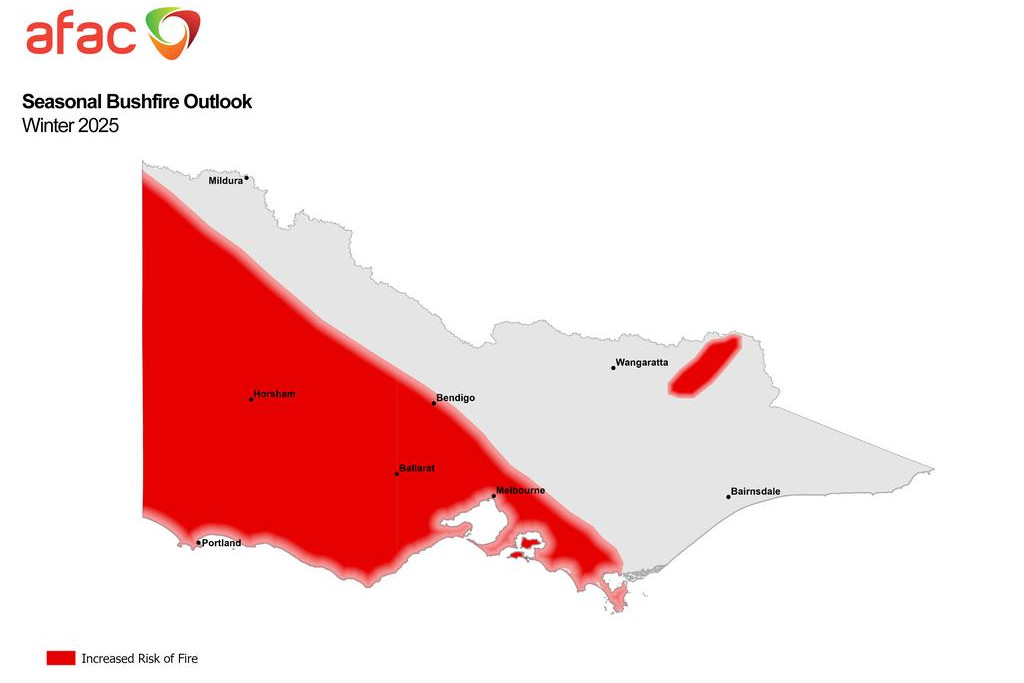General News
21 June, 2025
Above average bushfire risk for winter
Victorians are facing an increased bushfire risk across much of the state after a warm and dry autumn, according to the Australian Seasonal Bushfire Outlook for winter released last week.

March and April saw the fourth highest temperatures on record, below average rainfall across much of Victoria and an extension of the Fire Danger Period in some parts of the state for the first time since 2019.
These conditions, coupled with existing underlying dryness, has led to a higher level of dried grass and vegetation.
In grassland, halted pasture growth has led to grazed-out or bare conditions.
As a result, an above average bushfire risk is predicted for much of southwest Gippsland, extending into central, southwest and northwest Victoria, as well as parts of northeast Victoria this winter.
The increased risk isn’t for long-running bushfires but events caused by uncontrolled burn-offs and other activities.
Acting CFA chief officer Garry Cook said while cooler days are arriving, the landscape remains dry enough to allow fires to start and spread quickly if a burn-off gets out of control, especially when coupled with strong winds.
“The lack of rainfall and dry vegetation across many parts of the state is a great concern for firefighters this time of the year and we’re asking people to remain vigilant and not become complacent just because we’re not in summer anymore," he said.
"The impact and damage of an escaped fire on local communities and emergency services can be devastating.”
Normal rainfall is expected this winter, and Victorians can expect normal fire potential across the rest of the state but fires are possible on dry and windy days in areas with dry or cured vegetation.
Forest Fire Management Victoria chief fire officer Chris Hardman said although there is still a lot to enjoy in forests and parks this winter, Victorians still need to take care with any campfires.
“Even at this time of year, just one unattended or poorly managed campfire can cause serious damage to the environment and put lives and property at risk," he said.
“Never leave a campfire unattended and use water to fully extinguish it – if it’s cool to touch it’s safe to leave.”
Communities are reminded to stay vigilant and to register burn-offs, monitor weather conditions, have sufficient equipment and water to stop the fire spreading and never leave a burn-off unattended.
Residents are encouraged to keep up to date with the Fire Danger Ratings on the VicEmergency app and website.
Acting Emergency Management Commissioner Tim Wiebusch said it's important for residents to remain prepared for all emergencies including storms.
“As part of your planning for emergencies, ensure you have enough supplies to last 72 hours," he said.
"Download the VicEmergency app and never rely on one source of emergency information.”
The Seasonal Outlook for winter is developed by the Australian and New Zealand Fire and Emergency Services Council (AFAC) and supported by the Bureau of Meteorology, along with state and territory fire and land managers.